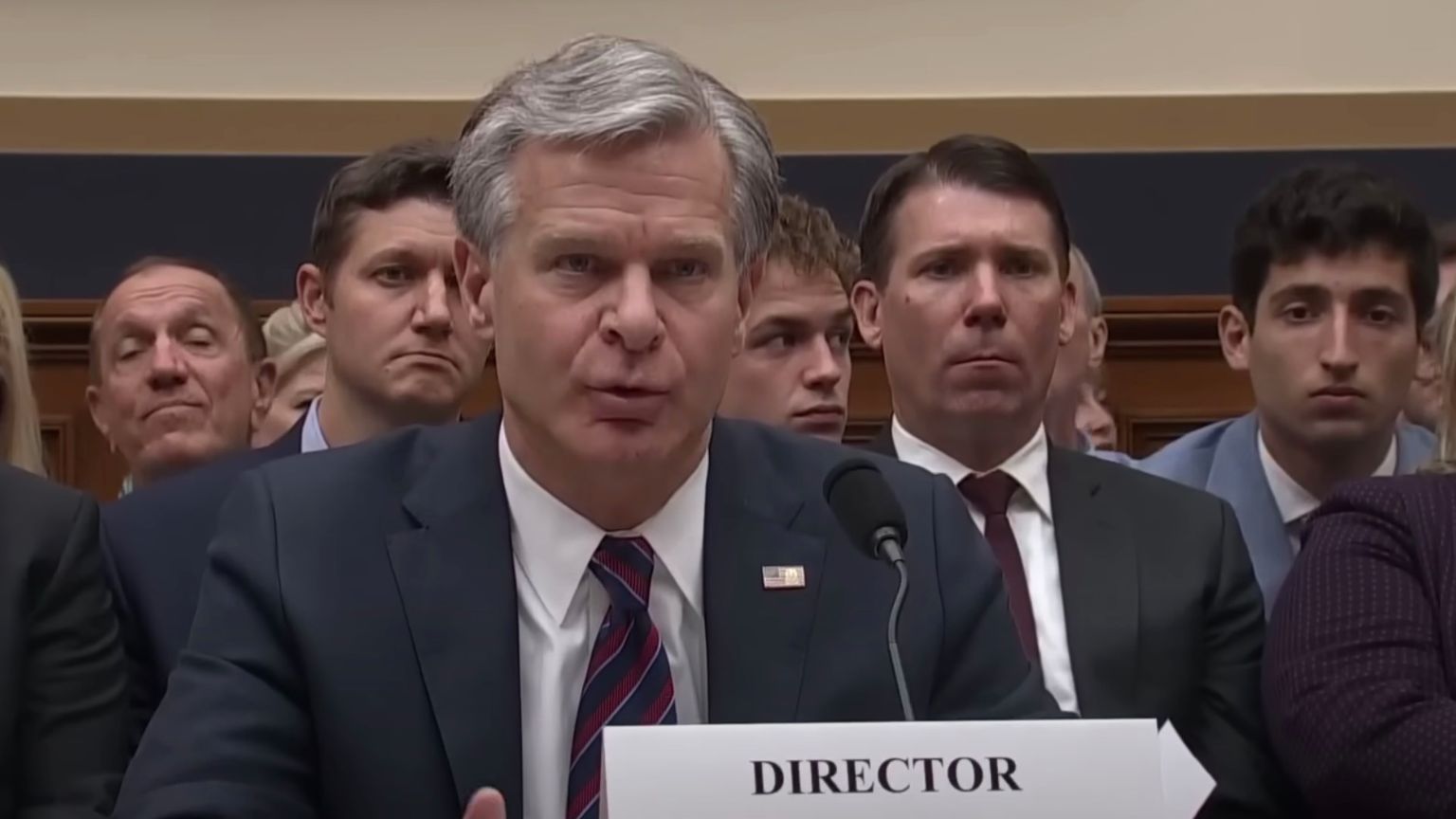A Foreign Intelligence Surveillance Court (FISC) opinion has disclosed (yet another!) significant breach of FBI policy involving the surveillance of US citizens, including a US Senator, a state Senator, and a state judge. The violations occurred during the implementation of FISA Section 702, which is designed to permit the targeted surveillance of non-US citizens overseas.
We obtained a copy of the opinion for you here.
The opinion was made public by the Director of National Intelligence and discloses queries carried out in June and October 2022 under the purview of Section 702.
In contradiction to established procedures, these queries failed to meet the legally prescribed standard and contravened FBI policy that requires the pre-approval of “sensitive query terms” by the Deputy Director.
Watch our video report on the FBI’s illegal searches here.
The transgressions were exposed during inquiries conducted using identifiers such as the last names of the involved US Senator and state Senator and the social security number of the state judge.
While the specific individuals remain unidentified, these revelations have underscored the recurrent issue of Section 702 misuse.
Despite assurances from the FBI that these searches were supposedly motivated by foreign threats, the agency acknowledged that they fell short of being “reasonably tailored to the query standard” and lacked the required pre-approvals.
In response to the court’s opinion, FBI Director Christopher Wray reaffirmed the importance of Section 702 in combating foreign adversaries and pledged continued commitment to maintaining a balance between national security and civil liberties.
Wray outlined the FBI’s ongoing efforts to bolster accountability and improve adherence to Section 702 requirements.
The Director of National Intelligence acknowledged the benefits of these reforms, noting a “significant decline” in the number of FBI queries involving US citizens between 2021 and 2022, resulting from enhancements to “systems, processes, and training relating to US persons queries.”
A “significant decline” in something that, constitutionally, should be zero.
But even though Section 702 has continuously been used to spy on Americans, Air Force Lt. Gen. Timothy Haugh, the nominee selected by President Biden to helm the National Security Agency (NSA) and US Cyber Command, has spoken out in support of renewing Section 702 of the Foreign Intelligence Surveillance Act (FISA). This statement was made during a Senate Armed Services Committee confirmation hearing on Thursday, sparking a resurgence in privacy debates around this contentious authority.
According to Lt. Gen. Haugh, the controversial Section 702 surveillance authority has been pivotal in providing invaluable intelligence over time, which has contributed significantly to the disruption and prevention of threats against the United States. He emphasized that this surveillance law, exclusively targeted at foreign individuals abroad, has been an irreplaceable tool for identifying foreign cyber activities on American soil, including breaches on companies and private individuals.
Moreover, Haugh underscored the diverse applications of the surveillance mandate, citing its instrumental role in countering international terrorism, monitoring the influx of fentanyl from China, and keeping tabs on Russia’s “egregious acts” in the ongoing conflict with Ukraine.
In light of these assertions, Sen. Jack Reed (D-R.I.), the committee’s chairman, queried Haugh on the potential privacy implications of this surveillance authority. He questioned if Haugh, if confirmed, would ensure that Section 702 respects the privacy of American citizens, even as it’s deployed in the quest for national security.
Haugh responded by highlighting the necessity for a strong compliance culture within the NSA, to ensure appropriate oversight and enforcement of surveillance laws. He emphasized the agency’s commitment to safeguarding American civil liberties alongside protecting national security.
However, despite Haugh’s assertions, the proposed renewal of Section 702, set to lapse at the end of this year if not reapproved by Congress, has reignited concerns among lawmakers from both sides of the aisle. Critics argue for substantial reforms to the surveillance law, citing potential intrusions on the privacy of US citizens, especially those communicating with overseas contacts.
Senator Dick Durbin (D-Ill.), Chair of the Senate Judiciary Committee, voiced staunch opposition to the law’s renewal in its current form, insisting on significant reforms. Durbin accused Section 702 of infringing upon Fourth Amendment rights, which protect against unwarranted surveillance, a concern that he has maintained since the law’s inception in 2008.
While the FBI has stated that these violations occurred before the agency implemented reforms in the summer of 2021, privacy advocates and lawmakers continue to call for comprehensive checks on this sweeping surveillance authority to ensure it doesn’t compromise Americans’ constitutionally protected rights.










